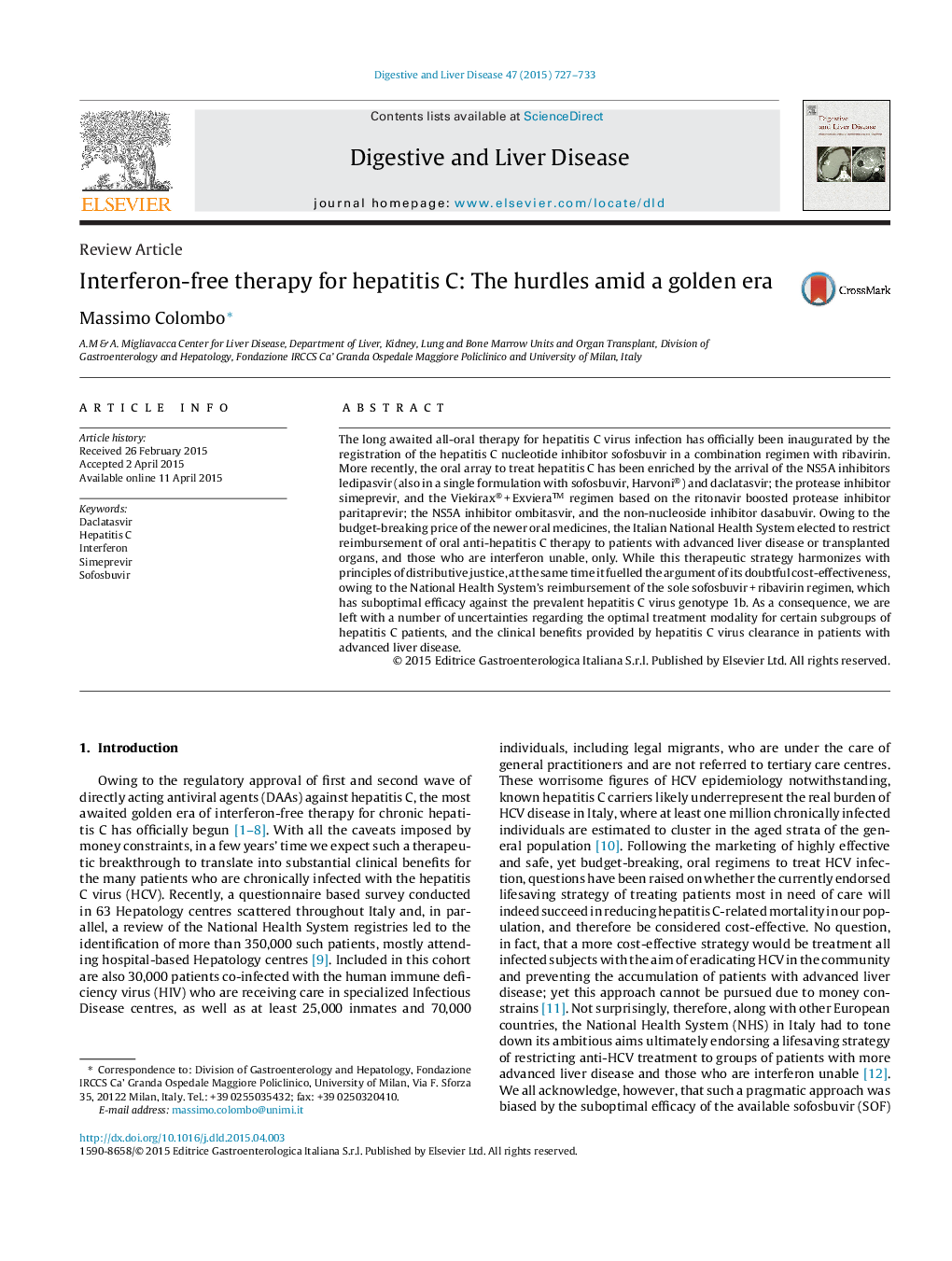| Article ID | Journal | Published Year | Pages | File Type |
|---|---|---|---|---|
| 6088229 | Digestive and Liver Disease | 2015 | 7 Pages |
The long awaited all-oral therapy for hepatitis C virus infection has officially been inaugurated by the registration of the hepatitis C nucleotide inhibitor sofosbuvir in a combination regimen with ribavirin. More recently, the oral array to treat hepatitis C has been enriched by the arrival of the NS5A inhibitors ledipasvir (also in a single formulation with sofosbuvir, Harvoni®) and daclatasvir; the protease inhibitor simeprevir, and the Viekirax®Â + Exviera⢠regimen based on the ritonavir boosted protease inhibitor paritaprevir; the NS5A inhibitor ombitasvir, and the non-nucleoside inhibitor dasabuvir. Owing to the budget-breaking price of the newer oral medicines, the Italian National Health System elected to restrict reimbursement of oral anti-hepatitis C therapy to patients with advanced liver disease or transplanted organs, and those who are interferon unable, only. While this therapeutic strategy harmonizes with principles of distributive justice, at the same time it fuelled the argument of its doubtful cost-effectiveness, owing to the National Health System's reimbursement of the sole sofosbuvir + ribavirin regimen, which has suboptimal efficacy against the prevalent hepatitis C virus genotype 1b. As a consequence, we are left with a number of uncertainties regarding the optimal treatment modality for certain subgroups of hepatitis C patients, and the clinical benefits provided by hepatitis C virus clearance in patients with advanced liver disease.
